Author
”For as long as I can remember, I’ve been interested in women’s stories, looking for tough subjects. I’ve worked as a journalist for years, then started writing novels. For some reason, my stories started in Africa. I wrote about the situation of women in rural Tanzania, and tribal female genital mutilation. I also addressed the topics of Arab and Muslim feminist movements and female sex tourists. All important, but rather distant topics. I slowly started to notice what was happening in my home. In front of my eyes, right next to me. I’ve travelled a long road, maybe not in vain.”
Katarina Durica was born in 1983 in Bratislava (Pozsony), Czechoslovakia. She grew up in Šamorín (Somorja), in the Žitný ostrov (Csallóköz) region, where she graduated from the local high school, before obtaining a degree in Art History and Art Dealing at Trnava University. In 2004, she traveled to Egypt, where she worked as a tour guide and installed representative. Next, she moved to Jordan, Turkey, then Tunisia. The tourist destinations of these countries inspired her while writing her first novel, “Escape to Egypt”. Hundreds of Hungarian and Slovakian women travelled on cheap, last-minute trips to avail themselves of the locals’ sexual services there.
The book was published in 2013 through Jaffa Publishing, the Slovakian translation stayed at the top of bestseller charts for months.
She moved to Bratislava in 2008 to work as a journalist. In 2010, during the Radičová administration, she was spokesperson for the Ministry of Environmental Protection and Agriculture.
She worked as a freelance journalist in Budapest, to this day she often makes reports and interviews on topics related to women. Since 2013, her writings are published in the Hungarian ELLE magazine, and in 2011-2013, she reported for Index about various Slovakian political events. Her writings are published on the platforms of National Geographic, WMN, Index, and the Slovakian Hungarian monthly Új NŐ.
Her second novel „Loving in Slovakian” was published at Libri publishing for the 2016 Budapest Book Fair. The story starts out in Tanzania, with an art dealer girl from the Hungarian community in Slovakia trying to find herself. A Czechoslovakian adventure with an African detour…
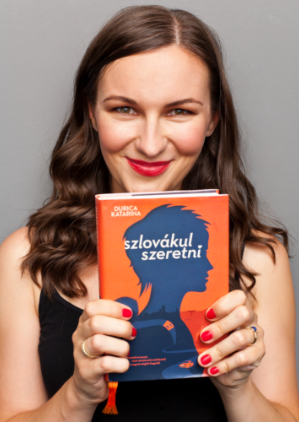
“In the years before 2018, I visited villages and towns in the Žitný ostrov region and conducted interviews with the mafia victims of the 90s. I was in primary school when in Dunaszerdahely (Dunajská Streda), 20 kilometers from Somorja, the small town where I lived, hundreds of girls were gang raped. Many of the era’s victims spoke up for the first time in relation to “Good Girls Cry in Silence” the survivors of gang rape (who were 16-18 years old at the time), mothers whose sons entered the mafia, and men whose businesses and lives were ruined.”
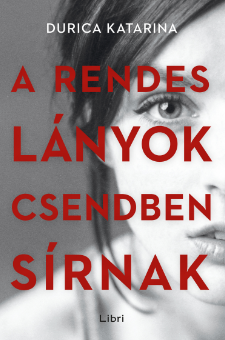
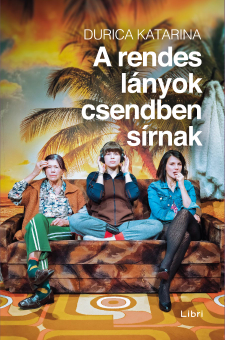
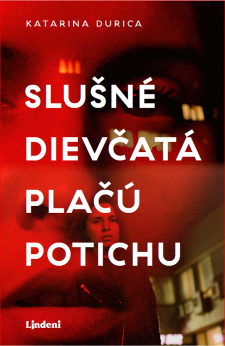
Her novel titled „Good Girls Cry in Silence” was published at Libri Publishing in 2018 for the Budapest Book Fair, and first edition copies ran out in 10 days. The novel is currently in its 10th reprint, film rights were bought, and Vígszínház put it on its program.
The stage adaptation of the novel debuted on the Vígszínház Home Stage on 13 March 2021 with Béla Paczolay as director, starring Mari Kiss, Edit Balázsovits and Luca Márkus.
In 2019, she participated in TEDx Liberty Bridge’s conference titled “Brave and Brilliant” as a speaker, and she talked openly about the post-traumatic stress caused by the process of working on the book.
“I was told so many times that if I want to write a successful book (whatever that means), I should not bother with stories from the outside the Hungarian border. “Žitný ostrov, Horná zem, are you kidding? Where on Earth is that? People won’t give a shit!” Then I also heard that I should deal with “cool and current” topics, and remarks about how “If you write about women, sooner or later you’ll be pigeonholed as some kind of Danielle Steel!” A recurring comment was that it’s fine to write the story from a female viewpoint, but “the men are somehow missing”. For a while now, I’ve been giving the same answer to that: Are girls also missing from the Paul Street Boys?”
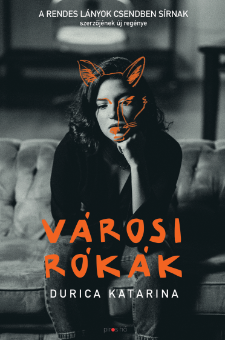
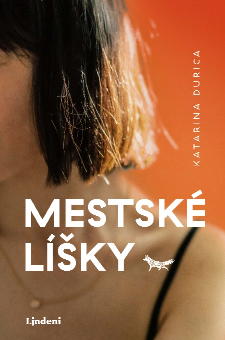
She moved to Brussels in 2019 and wrote her novel “Urban Foxes” there, abut diplomat wives, Eastern European prostitutes, and the psychological background of revenge porn.
The novel “Urban Foxes” is the first one that she published independently, through her own Red Snow Publishing.
”This is my first novel not published by a big publishing house.
I founded my own publishing business, Red Snow Publishing debuts with Urban Foxes. Why Red Snow?
Timi, interviewees for Good Girls Cry in Silence, and other women told me such sentences numerous times:
„I’ve never talked to anyone about this.” „Nobody’s ever asked about it.” „They threatened me, told me that if I talk, no one will believe me anyway.” „When red snow falls!”
I was also told so many times that it won’t work, I shouldn’t even try, I should write about „beauty” topics, at least those are well-paid.
„Do you know how far we are from talking normally about highly taboo female topics?”
Well, the time has come. That red snow is falling now. Red Snow Publishing”
In 2022, she published her novel titled „How Much Did It Cost You?”, where she talks about the world of Hungarian surrogate mothers, egg donors and barren women. „Katarina Durica is smashing taboos again, and as we already know her to do so: she goes all the way to write about the fates of those who don’t talk and those who everyone else keeps silent about” – writes Krisztina Kovács, chief dramaturg of Vígszínház, in the blurb of the book.
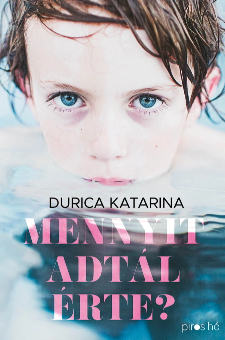
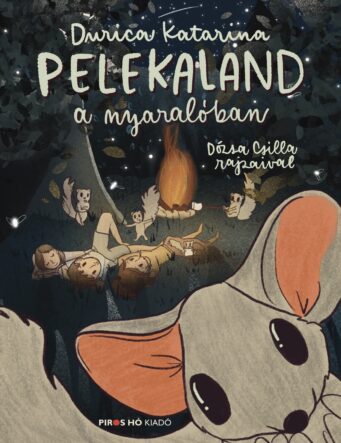
“Pelekaland a nyaralóban” (Dormouse Adventures at the Cottage) debuted in 2024: a short story for children, illustrated by Csilla Dózsa.
2019 Aranykönyv (“Golden Book”) podium finish
2020 Highlights of Hungary nominee for her work in aiding vulnerable women
2023 ELLE Awards Author of the Year nominee
She’s married to foreign policy expert Botond Feledy, they are raising their three children, Farkas, Kamilla, and Róza.


